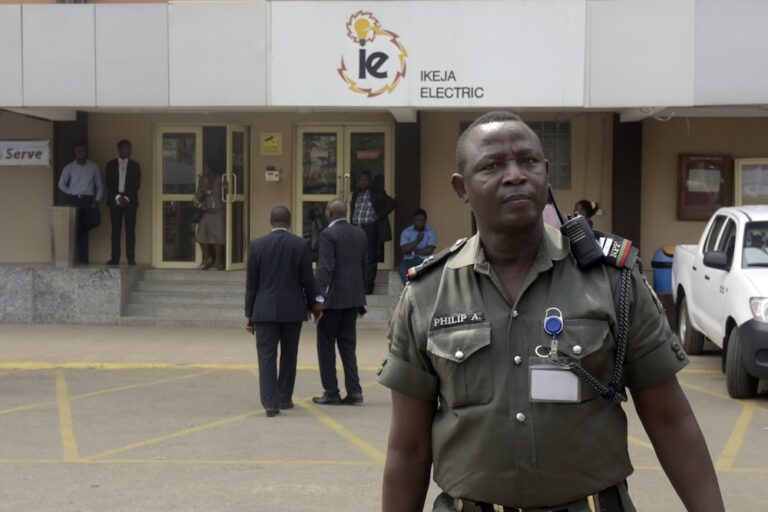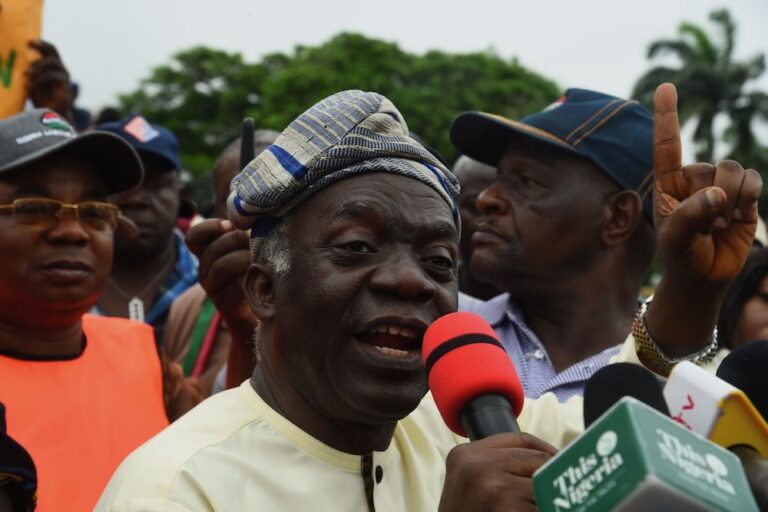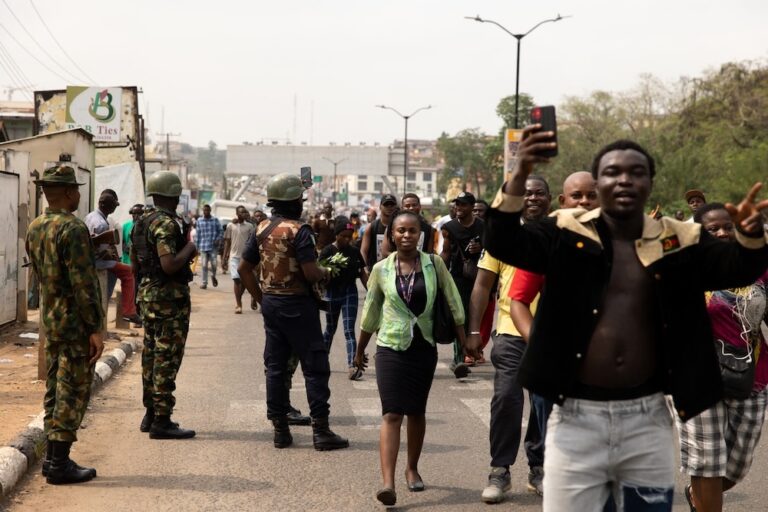Physical attacks, threats and arrests highlight media's urgent need for better climate.
(RSF/IFEX) – Reporters Without Borders secretary-general Jean-François Julliard has written to President Umaru Musa Yar’Adua expressing deep concern about the problems being experienced by journalists in Nigeria. The organisation registered 42 press freedom violations in Nigeria in the first half of 2009 and found that, for the most part, police officers or local officials such as provincial governors were responsible.
“Mr. President, we think you have a duty to react to all these press freedom violations,” Julliard said in the 1 July 2009 letter. “As guarantor of the constitution and basic freedoms, you must ensure that journalists are able to work in a satisfactory manner throughout Nigeria, without being subjected to threats, physical attacks or judicial harassment.”
“Your country enjoys a degree of press freedom that was won at great cost but this achievement is under threat from violence and obstructive behaviour,” the letter said. “We urge you, as matter of priority, to demand that state governors stop persecuting journalists who upset them. We also urge you to systematically punish police officers who violate journalists’ rights.”
A total of 21 journalists were physically attacked during the first six months of the year, eight were threatened, five were abducted for several hours, and three were detained for periods of between 24 hours and one week. Three media outlets were censored and one was physically attacked. Furthermore, there was a string of incidents in the last few days of June.
In the latest of these incidents, Freedom Radio executive vice-chairman Alhaji Ado Mohamed was arrested by nine Kano state police officers on 26 June in connection with an article on the Saharareporters website accusing Kano’s governor, Malam Ibrahim Shekarau, of being involved in the fatal shooting of Sheikh Ja’afar Mahmoud Adam, a Koranic studies teacher at the Almuntada Mosque in Dorayi, in April 2007.
In a separate incident, Mallam Tukur Mamu, editor of the Kaduna-based weekly “Desert Herald”, went into hiding on 23 June after getting several phone messages that day warning that Kano’s governor would “personally take care of (him)” if he continued to publish articles that “harm the government’s interests.” Mamu had also run stories about Adam’s murder.
In another incident, six journalists were badly beaten by state police on 25 June in Asaba, the capital of the southern Delta state, when they went to cover the demolition of illegal shops. The journalists included Daniel Ayemere of Minaj Broadcasting International, who was hospitalised in serious condition.
The same day, Kayode Adeji of the daily “Next”, Segun Adeleye of the “Daily Independent” and Demola Oni of the daily “The Punch” were manhandled by bodyguards for Tunji Egbetokun, the speaker of the state assembly in the southwestern state of Ogun.
In yet another incident, the governor of the southwestern state of Ekiti, Segun Oni, ordered the closure of all the state’s radio and television stations on 19 June after journalists went on strike for better work conditions. As a result of the strike, three state television journalists who are union activists were sanctioned.
Nigeria was ranked 131st out of 173 countries in the 2008 Reporters Without Borders press freedom index. The State Security Service, a special police force that takes its orders from the president, has been on the Reporters Without Borders list of “Predators of Press Freedom” for several years.
See the letter to President Umaru Musa Yar’Adua: http://www.rsf.org/Physical-attacks-threats-and.html


